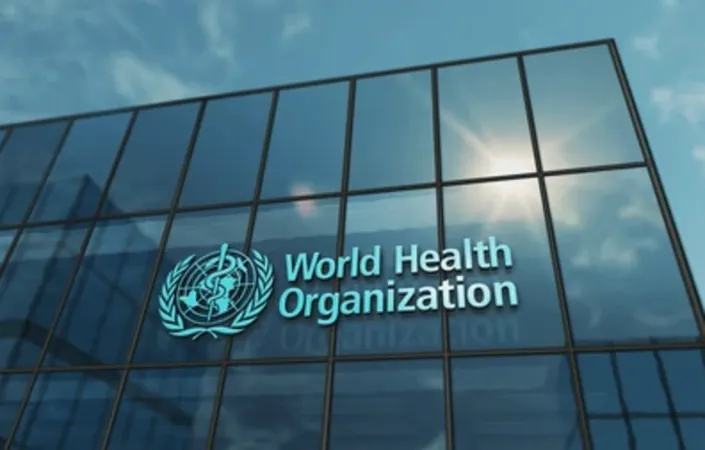
Urgent Action Needed: East Asia Unites to Combat Diabetes Crisis Ahead of Alarmingly High Death Toll
2024-11-27
Author: Jia
Introduction
In a crucial initiative aimed at combating the rising diabetes epidemic, health experts and government officials from the World Health Organization's South-East Asia Region gathered in Colombo to endorse the 'Colombo Call to Action'. The event, held on November 21-22, 2024, stressed the importance of collective commitments and strategic actions to bolster diabetes prevention and control measures.
Diabetes Toll in East Asia
Each year, this region faces an alarming toll of over 482,000 deaths related to diabetes. The disease often leads to severe complications, including blindness, kidney failure, heart attacks, strokes, and amputations, imposing tremendous hardships on individuals, families, and national economies. The Colombo Call to Action aligns with WHO's Global Diabetes Compact, which aims to mitigate the risk of diabetes and guarantee quality treatment for those diagnosed.
Urgent Statements from WHO Officials
"Timely access to diabetes care is life-saving," remarked Saima Wazed, Regional Director of WHO South-East Asia, emphasizing that equitable and affordable care services are essential. Over 100 health experts and officials participated in this pivotal meeting, including representatives from various health ministries and international agencies.
Collaborative Efforts in Diabetes Management
Sri Lankan Deputy Minister of Health Hansaka Wijemuni affirmed the government’s commitment to tackle diabetes through initiatives like SEAHEARTS, collaborating with various organizations to enhance healthcare access and medication availability.
Global Diabetes Crisis
The urgency of the diabetes crisis is echoed by WHO Director-General Tedros Adhanom Ghebreyesus, who noted that the global diabetic population has increased fourfold over the last thirty years, now exceeding 800 million, with many lacking access to necessary treatment.
Call to Action Strategies
The newly established Call to Action outlines essential strategies, such as strengthening primary healthcare systems and improving access to insulin and diagnostics. It calls for national policies promoting healthy lifestyles and setting achievable diabetes management targets by 2030.
Current Challenges in Diabetes Care
Significantly, while over 60 million people in the South-East Asia Region are currently receiving protocol-based management for diabetes and hypertension, challenges persist. Over 260,000 children and adolescents with type 1 diabetes struggle with inadequate access to insulin. Furthermore, the rise of type 2 diabetes among youth in the region raises alarms about future generations' health.
Focus on Primary Healthcare
To tackle these challenges decisively, the focus must be on equipping primary healthcare with standardized treatment protocols, essential medications, and professional training.
Conclusion and Shared Responsibility
Wazed emphasized the long journey ahead, stating, "The path to overcome barriers and care gaps is long and challenging, but achievable. It is a shared responsibility to prevent diabetes and enhance the quality of life for those affected." The call to action is not merely a statement; it signifies a global acknowledgment of the diabetes crisis. As countries unite under this initiative, the emphasis remains clear: no one should be left behind in the fight against diabetes, where equitable and comprehensive care is the ultimate goal.


 Brasil (PT)
Brasil (PT)
 Canada (EN)
Canada (EN)
 Chile (ES)
Chile (ES)
 España (ES)
España (ES)
 France (FR)
France (FR)
 Hong Kong (EN)
Hong Kong (EN)
 Italia (IT)
Italia (IT)
 日本 (JA)
日本 (JA)
 Magyarország (HU)
Magyarország (HU)
 Norge (NO)
Norge (NO)
 Polska (PL)
Polska (PL)
 Schweiz (DE)
Schweiz (DE)
 Singapore (EN)
Singapore (EN)
 Sverige (SV)
Sverige (SV)
 Suomi (FI)
Suomi (FI)
 Türkiye (TR)
Türkiye (TR)